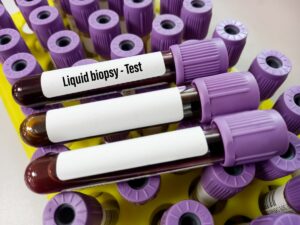In today’s healthcare environment, patients can and want to more fully participate in their care management. Yet they do expect their healthcare provider to always be one step ahead, especially when it comes to their safety and overall well-being — it needs to be your highest priority.

What is National Check Your Meds Day?
National Check Your Meds Day is an annual event that was designed to encourage consumers to bring their prescription medications and supplements to their local pharmacies and healthcare providers for “brown bag” medication reviews. The term “brown bag” describes the activity of putting all one’s medications into a bag and taking them to a pharmacist or doctor.
Held every October 21, this day also works in conjunction with the Drug Enforcement Administration’s “Prescription Drug Take-Back Day” held the last Saturday of every April and October. It was established to provide a safe and responsible way to dispose of prescriptions, while also educating the public about the potential for misuse of medication.
Medication safety, especially for patients who may be on complex drug regimens or have genetic factors that influence drug metabolism, cannot be reinforced enough. According to the World Health Organization’s most recent fact sheet on patient safety, “Medication-related harm affects 1 out of every 30 patients in healthcare, with more than a quarter of this harm regarded as severe or life threatening. Half of the avoidable harm in health care is related to medications.”
National Check your Meds Day serves as a valuable reminder of how providers help with medical safety by empowering patients, and their caregivers, to take charge of their health by ensuring they are using medications safely and effectively.
Roles in Safe Medication Management
Research has shown that patients are more willing to participate in medication safety if encouraged to do so by healthcare professionals. As genetic counselors serving by your side on the patient’s healthcare team, it is our responsibility to take a proactive approach to help them be active participants in their care.
The traditional role of genetic counselors used to be devoted narrowly to caring for patients and families affected by genetic conditions. Today, we are relied upon for our specialized knowledge adapted to clinically-relevant skills that can be very useful for providers helping patients with medical safety:
- Tailor medication plans for optimal outcomes: Genetic counselors can identify genetic variants that may impact a patient’s response to certain medications. By understanding these genetic nuances, we can work collaboratively with health care professionals to guide patients to the most effective treatment.
- Interpret data and make it actionable: Genetic information can provide vital insights into how a patient’s body metabolizes specific drugs. By deciphering pharmacogenomic data, medication choices, dosages, and frequency can be aligned with a patient’s unique genetic makeup.
- Mitigate adverse effects: We are uniquely equipped with knowledge and skills to aid physicians and pharmacists providing anticipatory guidance and direction to avoid potential adverse reactions or side effects related to certain medications.
- Facilitate informed decision making: Through education and support tools, genetic counselors empower patients to be advocates in healthcare decisions.
Healthcare Providers
- Promote awareness: Involve administrative, marketing and other teams to create signage and materials to promote National Check Your Meds Day around your office, on your website, in email communications and patient portal.
- Encourage patient participation: Create resources to educate patients and their caregivers about reviewing their medication lists, medication adherence and questions to bring to their appointments that can get the conversation started.
- Make time: Ensure you’re allocating enough time for patient engagement and to medication reconciliation at every patient encounter and during care transitions.
- Leverage technology: While not all patients use smart phones, providers should take advantage of those that do. A Pew Research Study revealed that more than 60% of U.S. adults 65-plus years of age own a smartphone, so make use of this tech. There are medication adherence apps you can recommend for more tech-savvy patients.
- Team up with genetic counseling services: Get to know genetic counselors in your area, and even telehealth providers, to build a referral network and direct working relationship. We can help with pharmacogenetics-guided medication plans for your patients.
By embracing National Check Your Meds Day and leveraging the expertise of genetic counselors, we can collectively enhance patient outcomes, minimize adverse effects, and optimize medication regimens.
Together, we can ensure that every patient receives the safest and most effective medications and is empowered to continue to manage them.
If you’re interested in speaking with one of our board-certified genetic counselors, email us at info@informeddna.com and we will be happy to discuss your needs.



